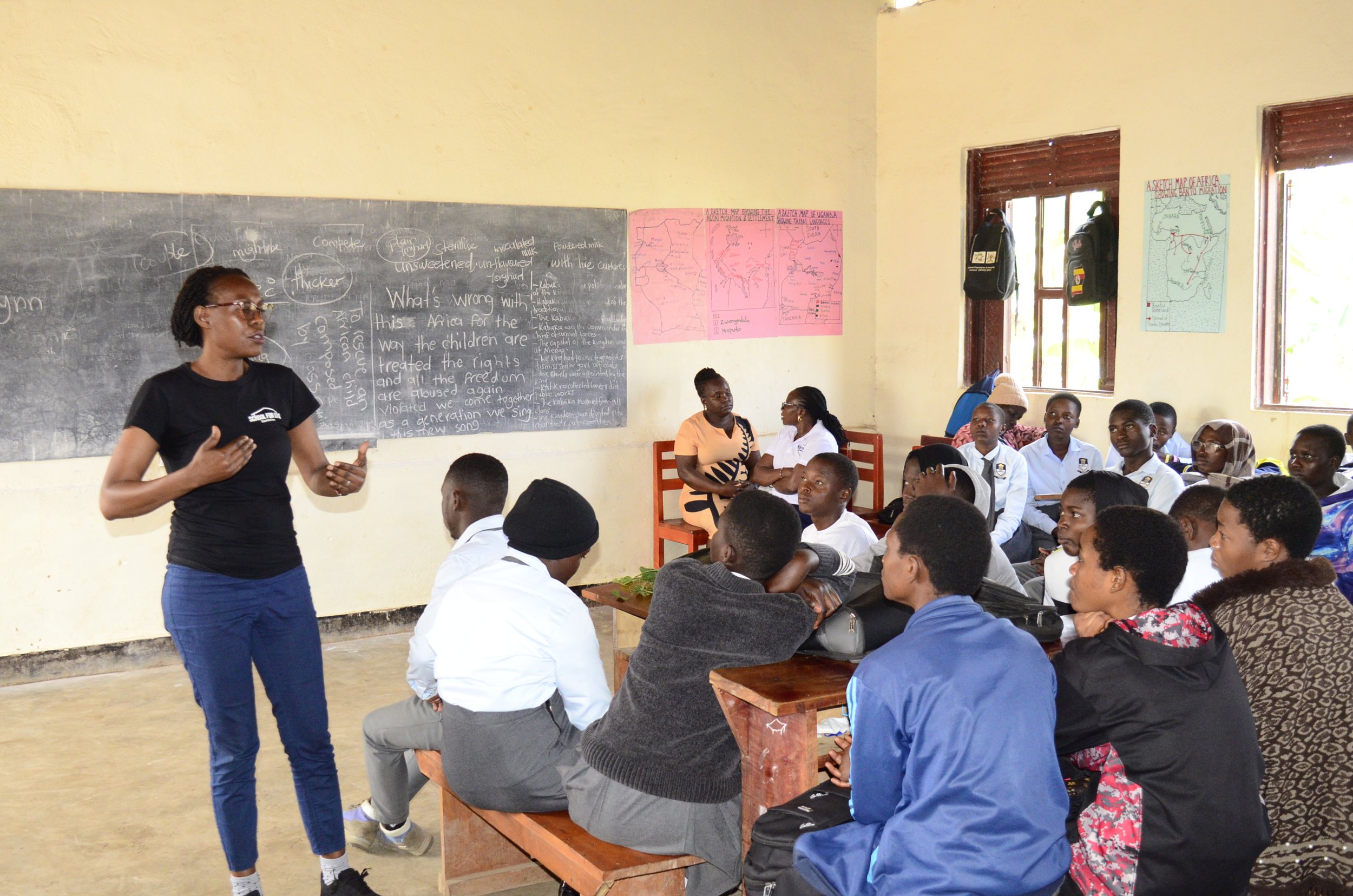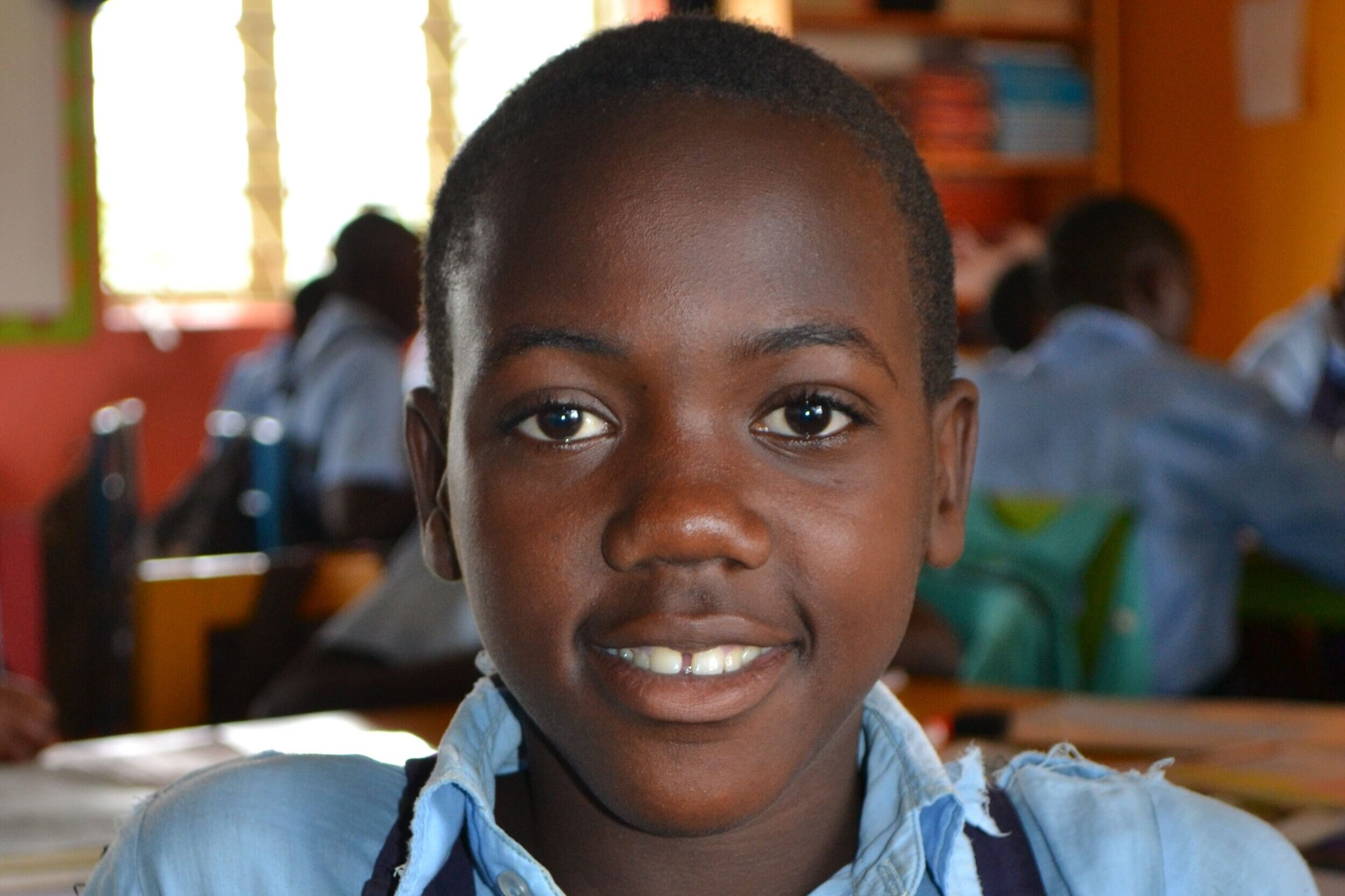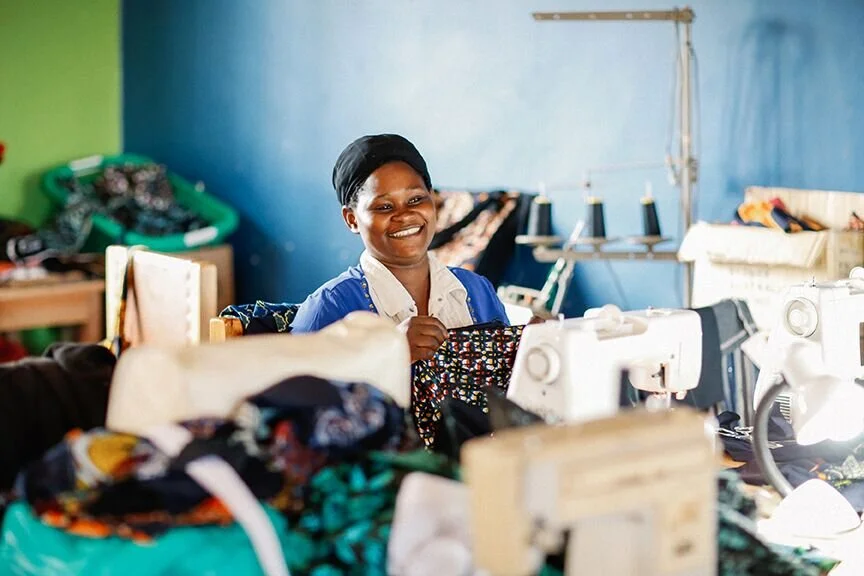Period poverty is a global health crisis that has long been overlooked and critically impacts a girl’s ability to access education.
Period poverty, or the inability to access or afford menstrual hygiene products, sufficient sanitation, and essential facilities, not only impacts physical health, but has a significant impact on mental health, academic participation, as well as self confidence. The Ugandan government estimate that around 23% of girls between the ages of 12 and 18 drop out of school once they hit puberty due to the difficulty in managing their period and an inability to afford adequate resources.
School for Life recognised the critical importance that access to menstrual hygiene care has on academic participation and launched our Menstrual Hygiene Program in 2020, to promote equitable gender participation in our schools.
Our program has seen increased results in attendance, participation, and confidence amongst our female students and is playing an important role in minimising stigma and improving the opportunities for our students.
We have recently shared our menstrual hygiene program, as part of our Quality Education Model, with our partners Planning4Tomorrow (P4T). Since partnering with School for Life, P4T have worked closely with our team to identify key areas of need for their students, as well as how School for Life can assist P4T to achieve their goals. P4T quickly identified that their students were in need of education and resources surrounding menstruation, health, and puberty. In addition to education, P4T highlighted a severe lack of access to menstrual hygiene products, water, sanitation, and infrastructure needed to help minimise period poverty within the Kyangwali Refugee Settlement, where P4T operate.
In June 2024, members of the School for Life team travelled to Kyangwali Refugee Camp in western Uganda to provide education and sensitisation sessions to the students, and distribute our Menstrual Hygiene Kits, proudly made by our School for Life Kumi Sewing team. 219 kits were distributed to both students and staff, which will help reduce absenteeism, improve academic participation, and build confidence.
Some of the important topics that were shared during the sensitisation session included;
What does menstruation mean
The changes that take place in the body once a girl begins menstruation
Menstrual discomforts and how to deal with them
Hygiene practices during menstruation and how to manage your period
Myths and misconceptions about menstruation
Safe use, storage, and disposal of menstrual hygiene waste
The roles and responsibilities of people in your life and how they can support you.
This initiative is a significant step towards reducing the prevalence of period poverty in Uganda and increasing the numbers of girls in the classroom.
On the introduction of the program, Benjamin from P4T said, “We are hopeful that the education and kit distribution will reduce some of the stigma associated with menstruation and reduce barriers to access to menstrual products that can lead to missed school days and reduced academic performance.”
Recognising the critical importance that access to menstrual hygiene products and education has on academic participation and performance is the first step in a long journey to reduce stigma and minimise period poverty.
You can support our Girls’ Fund with a gift of $45 a month which will provide 2 girls with reusable menstrual hygiene kits.
Nancy shares her story of how School for Life's Menstrual Hygiene Program has changed her life.














